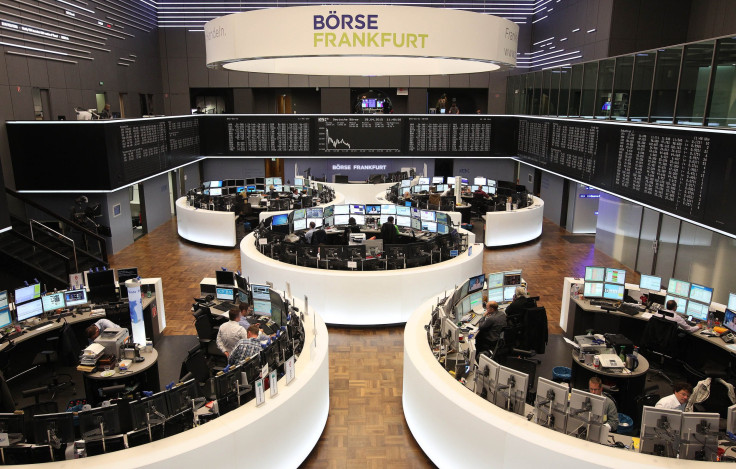European Stocks Slip Lower On Weak German Factory Data, Asian Markets Extend Gains

Asian shares extended gains, while European equities traded flat after a rebound Tuesday, with poor data out of Germany's factories weighing down on sentiment. Data released earlier in the day showed that German industrial orders dropped unexpectedly in August -- largely due to a fall in demand from non-eurozone countries.
The pan-European STOXX 600 was trading up 0.3 percent, while London’s FTSE 100 traded flat. Germany’s DAX rose 0.2 percent and France’s CAC 40 was 0.5 percent up. U.S. stock futures also dropped Tuesday, with futures for the S&P 500 pointing to an opening loss of 0.16 percent. Dow and Nasdaq futures were down 0.15 percent and 0.23 percent respectively.
“The rebound at the moment is, I would say, a fairly insipid rebound. What you've had is some bad economic numbers come out...and the market’s bounced on the back of it, and the reason why they've bounced is because people have pushed out the next interest rate hike in the U.S.,” Jonathan Bell, chief investment officer at Stanhope Capital, told CNBC. “But the problem is, that's a pretty weak reason to be buying a market...and this sort of rally isn't really sustainable.”
In August, German industrial orders witnessed a 1.8 percent monthly decline -- souring the short-lived rally European markets had witnessed in the past few days. Europe’s lackluster start Tuesday came despite a strong performance in the Asian markets overnight, which itself was preceded by an upbeat trading session on Wall Street.
Investor sentiment in Asia was buoyed by news that a free-trade deal between 12 Pacific Rim countries had been finalized after protracted negotiations. While Chinese markets remained closed for a holiday, rest of the Asian bourses were largely in the positive territory.
“An accord among countries representing a large swath of the global economy sends a positive signal worldwide,” Doug Lippoldt, a senior trade economist at HSBC, told Bloomberg. “Provided it is ratified, the accord will roll out over a period of years. This will establish an agenda in favor of liberalization over the medium to long term.”
Japan’s Nikkei 225 closed up 1 percent, while India’s S&P BSE Sensex traded 0.7 percent higher. South Korea’s Kospi Composite Index also closed up 0.6 percent. However, in Hong Kong, the benchmark Hang Seng index lost its gains after opening higher, closing down 0.1 percent.
In Australia, where the central bank decided, in a widely expected move, to keep its benchmark lending rate at a record low of 2 percent Tuesday, the S&P ASX 200 closed up 0.3 percent -- a two-and-a-half-week high.
© Copyright IBTimes 2024. All rights reserved.




















